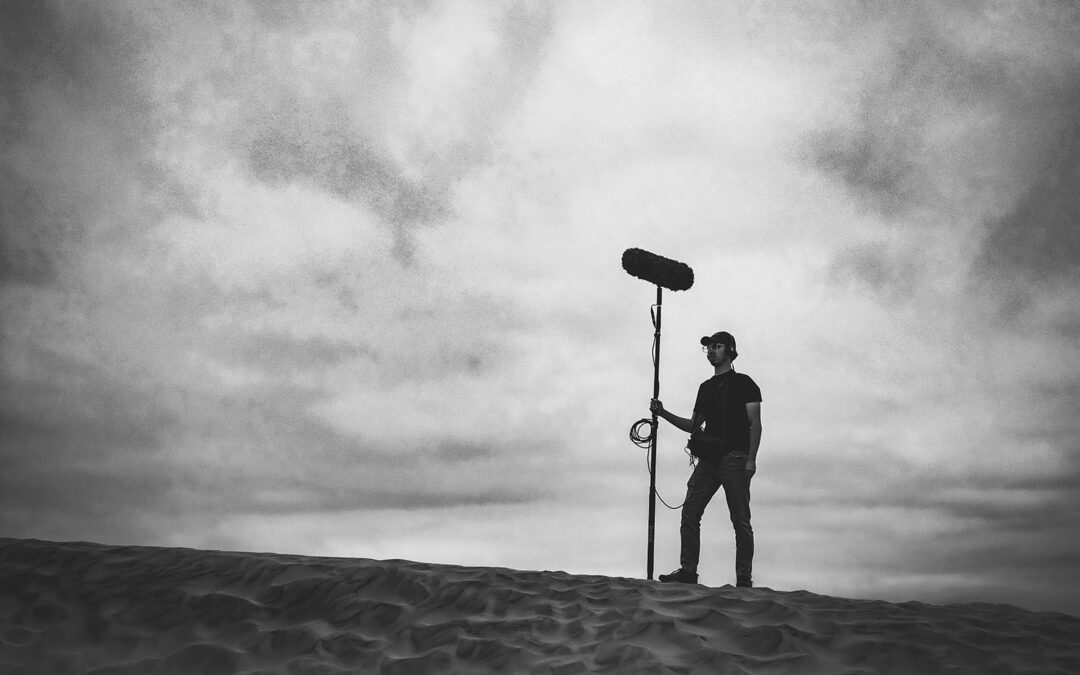Lights, camera, action—and sound! While the visuals in a film grab the spotlight, sound engineering plays a crucial role in shaping the moviegoer’s experience. Whether it’s the chilling creak of a door in a horror film, the immersive hum of a spacecraft, or the dialogue that delivers an emotional punch, sound engineers are the unsung heroes who bring stories to life. Let’s dive into what it takes to succeed in this fascinating corner of the entertainment industry.
What Does a Film Sound Engineer Do?
A film sound engineer’s role begins long before the cameras roll and continues well after the final “cut.” Their work encompasses three key areas:
- Sound Recording
During filming, sound engineers are responsible for capturing clear, high-quality audio. This includes dialogue, ambient sound, and on-set effects. Armed with boom microphones, lavaliers, and other specialised equipment, they ensure every word and sound is faithfully recorded, even amid noisy environments. - Sound Design
This is where creativity takes centre stage. Sound engineers collaborate with directors and editors to design the sonic world of a film. From creating eerie atmospheres to explosive action sequences, sound design sets the mood and enhances storytelling. - Post-Production Audio
In the studio, sound engineers polish the audio to perfection. They sync dialogue with visuals, add sound effects, and layer in musical scores. Noise reduction, balancing, and mastering are just a few of the technical tricks they employ to ensure the final product is cinematic gold.
Skills of a Sound Engineering Superstar
Success as a film sound engineer requires a blend of technical expertise, artistic vision, and excellent communication skills. Here’s what makes a standout sound engineer:
- A Sharp Ear: Spotting subtle sound discrepancies and knowing how to fix them is crucial.
- Tech Savvy: From Pro Tools to advanced recording equipment, mastering audio technology is essential.
- Creative Thinking: Crafting sounds that feel authentic—like making a thunderstorm in a studio—requires imagination.
- Teamwork: Collaboration with directors, editors, and other sound professionals is part of the job.
How to Break Into the Industry
Becoming a film sound engineer involves a combination of education, hands-on experience, and building a strong network.
- Education: Courses in sound design, audio engineering, or music production can provide a solid foundation.
- Experience: Volunteer for student films, intern on sets, or work in recording studios to build your skills and portfolio.
- Networking: Attend industry events, join online forums, and connect with filmmakers to get your foot in the door.
The Role in Shaping Iconic Moments
Think of your favourite film scenes—the T. rex roar in Jurassic Park, the lightsaber hum in Star Wars, or the haunting silence in A Quiet Place. These unforgettable moments weren’t just about visuals; they were crafted with meticulous sound engineering.
Sound engineers don’t just add to a film; they elevate it. They ensure that the sound not only supports the story but immerses the audience in the world unfolding on screen.
Final Thoughts
Being a film sound engineer is more than just a job—it’s a chance to shape the emotional core of a story. It’s about capturing the whispers, the roars, and the silences that make a film unforgettable. Whether you’re starting your journey or simply curious about the craft, remember: the world of sound is as vast and exciting as the stories it helps to tell.
Want your project to sound as epic as a blockbuster? Get in touch—we’re here to make your soundtracks sing and your stories soar!

